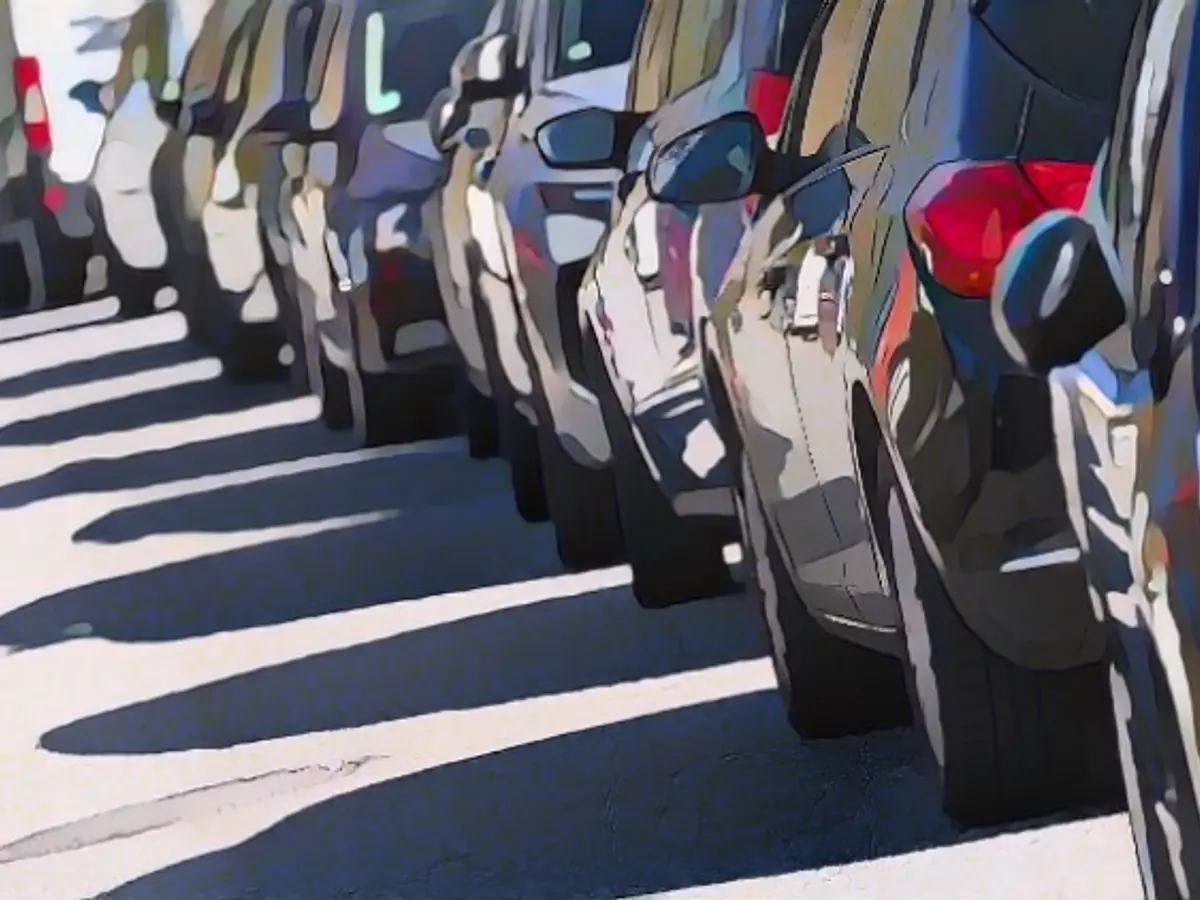E-cars are mainly bought when there is money from the state
The German government wants more people to drive an electric car. To make it easier for people to switch away from diesel and petrol, the state is throwing a lot of money at the problem. However, a look at the data suggests that this strategy may not be the best one.
With subsidies, tax incentives and parking privileges, the state has been trying for years to get people excited about electric cars - with limited success. In any case, the declared goal that at least 15 million private vehicles in Germany should have a purely electric drive by 2030 is still a long way off. Politicians and industry are accusing each other of failing to meet this target and are locked in discussions about who should provide the solution. The only thing they all agree on is the problem: Germany as a car nation is making far too slow progress in switching from the combustion engine to the electric motor.
According to the latest inventory data from the Federal Motor Transport Authority from October 2023, the vast majority of the more than 49 million registered cars - a good 90 percent - run on diesel or petrol. Only around 4.5 million use an alternative drive system. However, this figure also includes hybrid vehicles and cars powered by gas and hydrogen. At just over 1.3 million, purely electrically powered cars only account for just under 2.7 percent of the current vehicle population in Germany.
The proportion of e-cars has risen continuously in recent years - it has increased sixfold since October 2020. Nevertheless, progress is far too slow. At the current rate, the target of 15 million e-cars would probably not be reached until 2082 at the earliest.
Demand boost only through subsidies
The campaign for the e-car should really be stepping up a gear. However, the opposite seems to be the case at the moment. At the latest when the generous subsidy programs expire at the end of 2022, German drivers' interest in an e-vehicle will stagnate, as the year-on-year comparison shows.
Data on monthly new registrations makes the connection particularly clear: as soon as government subsidies beckon, the e-car sector gets a small boost. Shortly afterwards, however, the number of new registrations collapses and only gradually returns to its previous level. On average, around 49,000 new e-cars were registered per month over the past twelve months. If the target is still to be achieved by 2030, a good threefold increase would be necessary.
Only the prospect of financial benefits can significantly boost demand from time to time. In December 2022, for example, the proportion of newly registered e-cars reached a record high. This is clearly due to deadweight effects and a kind of panic to close the door: Until the end of 2022, the state was still offering subsidies of up to 6,000 euros for the private purchase of an e-car. From January, the maximum amount was only 4500 euros. The subsidy for plug-in technologies was scrapped altogether. In total, more than eight billion euros had already flowed into the subsidy program by the end of 2022.
Subsidies should be put to the test
A second peak in new registrations was recorded in August 2023. Here, too, the prospect of financial support from the state may have played a decisive role. After all, the Federal Ministry of Transport made up to 500 million euros available in September to promote the construction of private, solar-powered charging stations. There were grants of up to 10,200 euros up for grabs - but only for owners of a home and an electric car.
Of course, the question of the fairness of such measures cannot be ignored in the political debate. But subsidies also need to be scrutinized in terms of their effectiveness. And when it comes to e-mobility, one thing is clear: Government subsidy programs are having an effect - but only in the short term. Overall, the results fall far short of what is needed to achieve the declared goals. In order to drive forward the turnaround in transportation, levers other than the money spigot clearly need to be used.
Despite the significant financial investment from the state in the form of subsidies, tax incentives, and parking privileges to promote electromobility, the number of electric cars in Germany remains relatively low, accounting for only about 2.7% of registered vehicles.
Due to the expiration of generous subsidy programs and the change in subsidy amounts, the demand for electric cars tends to fluctuate, with a noticeable increase in registrations when financial incentives are available.
Source: www.ntv.de








